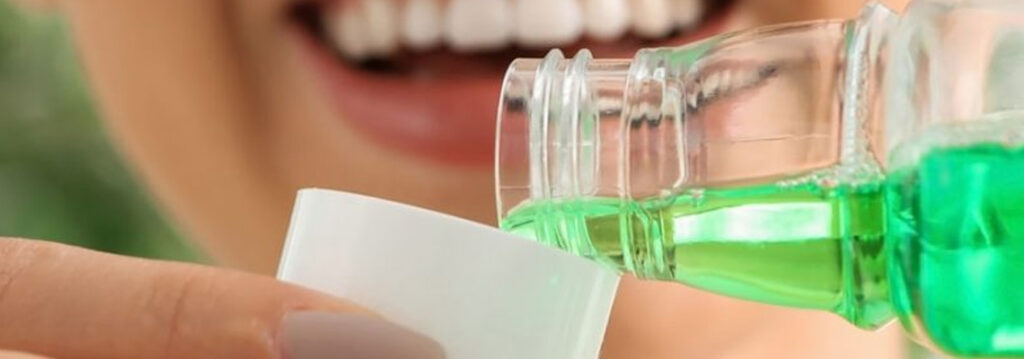Pros & Cons of Mouthwash
It is common knowledge that using mouthwash may keep one’s breath fresh and prevent the accumulation of a variety of germs in the spaces in between one’s teeth. There is a wide variety of mouthwash available on the market, including formulations suited for everyday care, alcohol-free variations, and herbal mixes. All of these mouthwashes are intended to improve oral health, excellent hygiene, and fresh breath in their users.
However, similar to the majority of other things, taking mouthwash can have both positive and negative effects. Let’s take a look at each of them individually.
Advantages
Oral hygiene and overall wellness can both benefit from using mouthwash. Some mouthwashes include high concentrations of fluoride, which can be helpful in preventing cavities and periodontal illnesses. Antiseptic mouthwashes, on the other hand, include chlorhexidine gluconate, an ingredient that stops the growth of germs in the mouth, treats bad breath and infections, and prevents bad breath.
The use of mouthwash after surgery is beneficial to the recovery process. There are specific types of mouthwashes that dentists would recommend to their patients in order to alleviate pain and inflammation following dental procedures. Patients who have been instructed not to clean their teeth for a lengthy period of time following surgical operations are typically given the recommendation to use this kind of mouthwash instead of brushing their teeth.
Mouthwash may be beneficial in the treatment of canker sores. Oral ulcers known as canker sores can be treated using mouthwash to help fight the infection that causes them.
Rinses with mouthwash may reduce the risk of developing difficulties during pregnancy. Mouthwash is an effective means of warding against periodontal disease, the presence of which has been linked to an earlier onset of labor in pregnant women. If germs were to reach the mother’s circulation, it would cause a rise in inflammatory markers and promote the mother’s contractions. Because it eliminates oral microorganisms, gargling with mouthwash can be an effective method for preventing this kind of thing from occurring.
Disadvantages
When swallowed, mouthwash can pose serious health risks to children. Children frequently consume mouthwash by mistake, which poses significant risks to their health. Mouthwash is not intended for human consumption. In severe situations, it can cause convulsions, and in less severe cases, it can result in comatose states. Mouthwashing is something that should only be done under the watchful eye of an adult for children aged six to twelve. Mouthwash should never be used by children younger than five years old unless it has been specifically recommended by a dentist.
It’s possible that mouthwash will hurt some portions of your mouth. Mouthwashes that contain a significant amount of alcohol have the potential to irritate or even burn the mouth’s sensitive mucous membranes.
Mouthwash has the potential to discolor and stain teeth. It’s possible for teeth to get discolored or stained if a chemical called chlorhexidine gluconate, which is included in some types of mouthwash, comes into touch with food additives that have been left in the mouth after eating.
Mouthwash has the potential to aggravate canker sores. Canker sores are a sort of mouth ulcer that can be healed by cleaning the mouth; however, using a type of mouthwash that has a high alcohol concentration might make the disease significantly worse.
It’s true that mouthwash helps cover up foul breath. And not for a very extended period of time. It is impossible for mouthwash to ever take the place of cleaning your teeth with a toothbrush. The use of mouthwash is simply one of several components that contribute to good dental health. Even while it can temporarily mask oral disorders by giving the impression of fresh breath, it will not be able to solve the underlying problem on its own.
Depending on how you use it, mouthwashes may either be beneficial or damaging to your oral health. Mouthwashes are used for a variety of purposes, the most common of which are to promote oral health and fresh breath. However, oral health and the requirements that come with it differ from person to person. Some people require a mouthwash for daily usage because their gums are especially sensitive, while others require it because they are recovering from oral surgery. Find out from your Chandler dentist which kind of mouthwash is most suited for your oral health so that you may take full advantage of this opportunity.
Dr. Motiwala in International Press
To access the article, kindly click the logo of the NEWS website below.
| |
Don’t Wait, Contact Us Now!
Dial +91 99596 14584 to speak with Dr. Motiwala Dental Clinic & Implant Center about your treatment choices and avoid paying any sinus lift costs in India. Contact us using the form on our CONTACT US page, and we’ll get back to you as soon as we can with the information you require.
